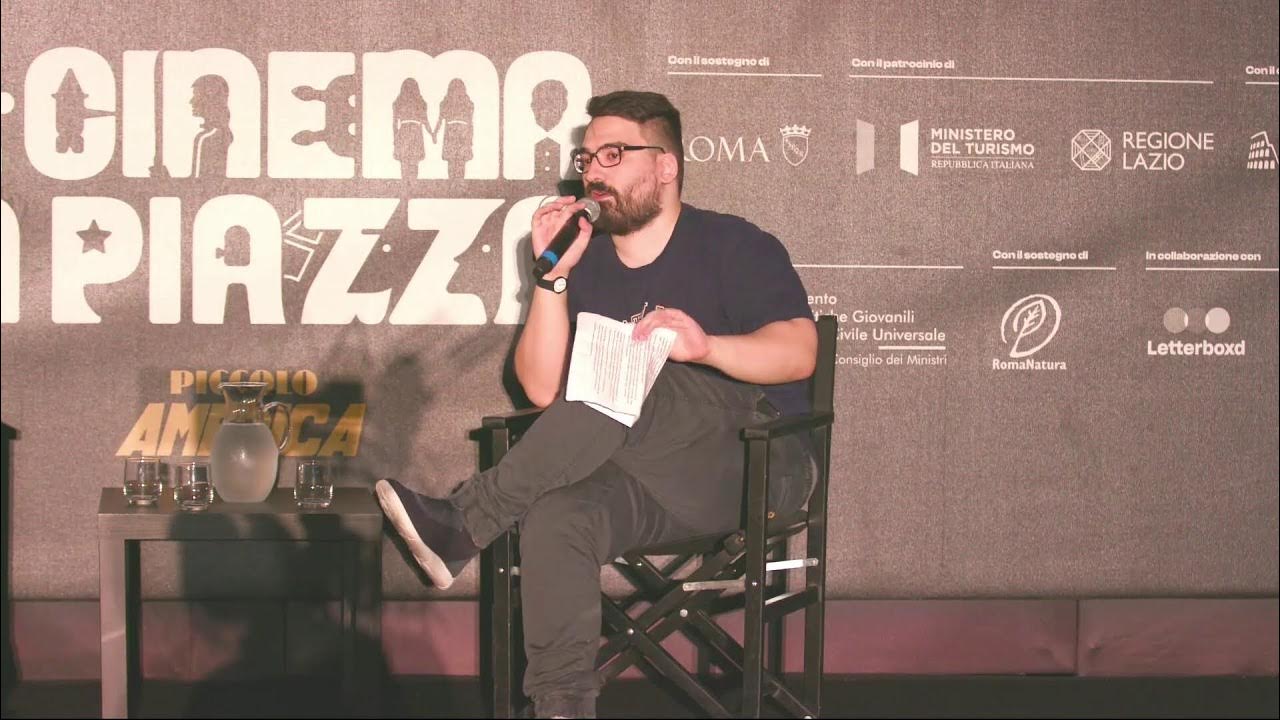Director Rob Burnett on ‘The Fundamentals of Caregiving’, Paul Rudd, and David Letterman
Summary
TLDRIn this interview, the director discusses his new film, which blends comedy with tragedy, starring Paul Rudd and Craig Roberts. The film, initially a longer cut, was refined to a tighter 93-minute runtime. The director shares his experience working with Rudd, who contributed significantly both on and off-camera. Challenges faced during production included harsh winter conditions in Atlanta and the necessity of cutting beloved scenes to serve the story. The director reflects on his growth, learning to adapt and be more flexible in his approach to filmmaking.
Takeaways
- 😀 The interviewee has been a fan of the interviewer's work since 'Ed' and they have maintained a friendship with Tom Cavanagh, which is a cherished outcome of that show.
- 🎬 The interviewee's son is a big fan of 'The Flash' and had an exciting encounter with the show's cast at Comic-Con.
- 🌟 The interviewee's movie got into Sundance Film Festival, which was a thrilling and unexpected moment for them.
- 📚 The movie is based on a book by Jonathan Edison and uniquely blends comedy with deep tragedy.
- 🎭 Paul Rudd plays a significant role in the movie, bringing both emotional depth and humor to his character.
- 🏆 Financing for the movie became easier once Paul Rudd agreed to join the project, highlighting his influence in the industry.
- 🎥 The interviewee values preparedness on set but also the flexibility to find the moment while shooting, a skill honed from directing 'Ed'.
- ⏰ The shooting schedule was tight, with only 24 days, and the team had to adapt to challenging weather conditions in Atlanta.
- ✂️ The initial cut of the movie was over two hours, but through editing, it was refined to a tighter runtime to maintain pacing and audience engagement.
- 📊 Test screenings provided valuable feedback, particularly in balancing the movie's tone between comedy and drama.
- 📽️ The interviewee's experience includes a memorable moment with David Letterman and Johnny Carson, illustrating the surreal nature of working in show business.
Q & A
What was one of the best things that came out of the interviewee’s involvement with 'The Flash'?
-One of the best things was the friendship with Tom Cavanagh, with whom the interviewee is still in touch almost daily.
How did the interviewee's son react to meeting 'The Flash' cast at Comic-Con?
-The interviewee's son was so excited that he humorously described it as his son’s head 'coming off his body,' showcasing the son's enthusiasm for meeting the cast.
What is the premise of the interviewee's Sundance film?
-The film is based on a book by Jonathan Emison. It follows a man (played by Paul Rudd) who becomes a caregiver for an 18-year-old with muscular dystrophy, and together they embark on a road trip, picking up broken souls along the way.
How did Paul Rudd’s involvement impact the film's financing?
-Paul Rudd’s agreement to be part of the film led to almost instantaneous financing, reflecting his strong appeal in the industry.
What qualities did the interviewee see in Paul Rudd that made him the right fit for the film?
-The interviewee needed an actor who could handle both the emotional depth and the comedic aspects of the character, and Paul Rudd fit this small group of actors who could balance both well.
How did the cold weather in Atlanta impact the film shoot?
-The weather was extremely cold, with temperatures dropping to 18 degrees, which challenged the crew. However, the snowfall led to an unexpected but beautiful shot of the house covered in snow.
How does the interviewee describe their directing style on set?
-The interviewee prides themselves on being very prepared, with a strong plan for each scene, but also remains flexible enough to adjust when needed, especially due to time constraints or unexpected changes.
What was a key adjustment made in the editing process of the film?
-A significant sequence of travel was cut to improve the film's pacing, leading to a shorter runtime of 93 minutes from an initial 2-hour cut.
What was the most challenging part of balancing the tone of the movie?
-Balancing the transitions between comedy and serious moments was the most challenging part, with the team adjusting emotional scenes to ensure they didn’t lose the audience by going too far into serious territory.
How does the interviewee reflect on working with David Letterman and Johnny Carson?
-One of the interviewee’s favorite memories was a humorous interaction between Johnny Carson and David Letterman at an Emmy dinner, where they both made fun of Letterman, marking an out-of-body experience for the interviewee.
Outlines

此内容仅限付费用户访问。 请升级后访问。
立即升级Mindmap

此内容仅限付费用户访问。 请升级后访问。
立即升级Keywords

此内容仅限付费用户访问。 请升级后访问。
立即升级Highlights

此内容仅限付费用户访问。 请升级后访问。
立即升级Transcripts

此内容仅限付费用户访问。 请升级后访问。
立即升级5.0 / 5 (0 votes)






